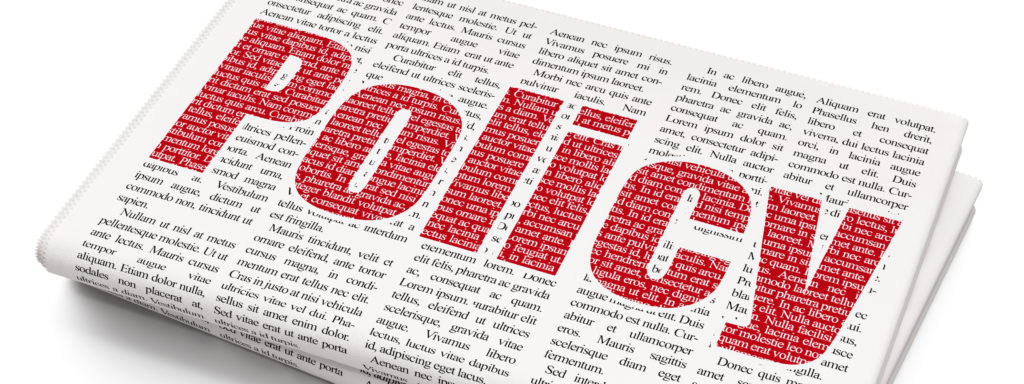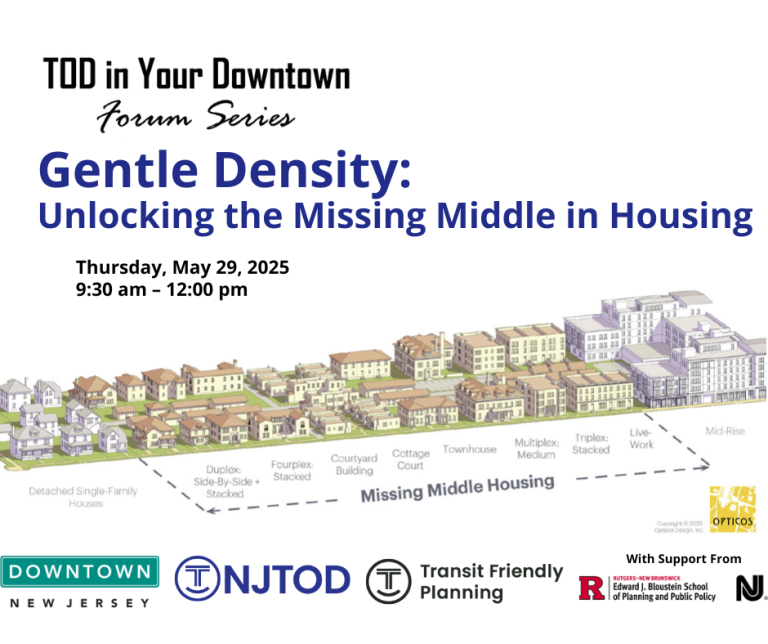53 N.J.R. 1711(a): Creation of a permit system which will allow “cottage food” businesses to operate with special permissions from the New Jersey Department of Health.
The rule allows individuals to sell baked goods that are baked in a kitchen in a private residence (and not in a commercial kitchen, which was the previous requirement). The NJ Department of Health adopted the rule on July 16, 2021, with an effective date of October 4, 2021.
P.L. 2021, c.99 (A4806/S3188): Permits municipalities to authorize programs to encourage shopping at local businesses through property tax rewards. The legislation also validates certain related municipal actions
The legislation permits the governing body of a municipality to authorize the creation of a property tax reward program to encourage residents of the municipality to shop locally. The bill passed in both houses on March 25, 2021, and was subsequently signed into law by Governor Murphy on May 12, 2021.
P.L.2020, c.117 (S864/A1978): Prohibits the provision and sale of single-use plastic carry-out bags.
The legislation prohibits the provision and sale of single-use plastic carryout bags, single-use paper carryout bags, polystyrene foam food service products, and single-use plastic straws. The bill passed in both houses on September 24, 2020, and was subsequently signed into law by Governor Murphy on November 4, 2020.
P.L.2021, c.168 (A1653/S2142): Encourages development of zero-emission vehicle fueling and charging infrastructure in redevelopment projects.
The legislation adds definitions of electric vehicle charging stations (EVCS), authorizes EVCS to be included in redevelopment plans and projects, and allows municipalities to use redevelopment funding streams to build public EVCS. The bill passed in both Houses on June 3, 2021 and was subsequently signed into law by Governor Murphy on July 9, 2021.
P.L.2021, c.69 (S3414/A5378): Promotes workforce diversity in public works projects.
The legislation promotes workforce diversity in public works projects by providing provisions for on- or off-the-job outreach and training programs for minority group members, members of disadvantaged groups, and women. The legislation also expands the use of project labor agreements (PLAs) to include highway, bridge, pumping station, water, and sewage treatment plant projects. The passed in both houses in February/March, and was subsequently signed into law by Governor Murphy on April 30, 2021.
P.L.2021, c.444. (S1149/A2877):Requires registration of certain vacant and abandoned properties with municipalities and provides enforcement tools related to maintenance of these properties.
The legislation requires the responsible party for a vacant and abandoned property to register the property with the municipality in which the property is located and would provide enforcement tools related to the maintenance of these properties. The bill passed in the Assembly on June 21, 2021. There has been no recent movement on the Senate companion bill since it was reported out of the Community and Urban Affairs Committee and referred to the Budget and Appropriations Committee on October 8, 2020.
P.L.2021, c.16 (A21/S21): “New Jersey Cannabis Regulatory, Enforcement Assistance, and Marketplace Modernization Act.”
This legislation will regulate the medical and adult-use industries and oversee the applications for licensing of cannabis businesses. It also allows for the Legislature to reinvest cannabis revenues in designated “impact zones” and directs the county Community Resource Center to promote diversity and inclusion in business ownership. The legislation also contains critical employment protections for people who engage in lawful behavior with respect to cannabis. The bill was approved and signed by Governor Murphy on February 22, 2021.
P.L.2021, c.19 (A1897/S2535): Provides criminal and civil justice reforms pertaining to marijuana and hashish possession.
This legislation reforms criminal and civil penalties for marijuana and hashish offenses, such as using unlawful low-level distribution and possession offenses in pre-trial release, probation, and parole proceedings. It also stipulates remedies for people who are facing marijuana charges currently. The bill was approved and signed by Governor Murphy on February 22, 2021.
P.L.2021, c.25 (A5342/S3454): Clarifies penalties of use and possession of marijuana and cannabis for individuals under the age of 21.
This legislation also corrects inconsistencies in A21 and A1897 regarding use and possession penalties for those who are under the age of 21. The bill was approved and signed by Governor Murphy on February 22, 2021.
P.L.2021, c.90 (S3234/A5149): Allows deduction from tax of certain expenses when taxpayer’s federal paycheck protection program loan is forgiven and excludes those forgiven loans from gross income tax.
The legislation allows a tax deduction of expenses forgiven under a paycheck protection program loan and excludes those forgiven loans. The bill passed in both houses in March and was subsequently signed into law by Governor Murphy on May 11, 2021.
P.L.2021, c.46 (A5446/S3519): Makes $15 million in federal funds available to the EDA to support businesses and non-profits in need.
The legislation appropriates federal funds to be allocated by the EDA to support businesses and non-profit organizations, to prevent additional business and non-profit closures, to support and create jobs, and to spur economic recovery. The bill passed in both houses on March 25, 2021 and was subsequently signed into law by Governor Murphy on April 12, 2021.
P.L.2021, c.45 (A5444/S3524): Makes $35 million in federal funds available to the EDA to support food and beverage establishments in need.
The legislation appropriates federal funds to be allocated by the EDA to support restaurants, dining establishments, bars, breweries, wineries, and brewpubs, or other similar establishments with 100 or fewer workers. The bill passed in both houses on March 25, 2021 and was subsequently signed into law by Governor Murphy on April 9, 2021.
P.L.2021, c.42 (S3523/A5443): Makes $25 million in federal funds available to the EDA to support microbusinesses in need.
This legislation appropriates federal funds to be allocated by the EDA to support entities that produce goods or services and have 10 or fewer full-time equivalent employees. The bill passed in both houses on March 25, 2021 and was subsequently signed into law by Governor Murphy on April 1, 2021.
P.L.2021, c.15 (S3340/A5246): Expands opportunities for restaurants, bars, distilleries, and breweries to provide outdoor dining and permits certain sales at seasonal farm markets in response to COVID-19 public health emergency.
The legislation provides expanded outdoor dining for restaurants, bars, distilleries, and breweries and permits certain alcohol sales at seasonal farm markets in response to the COVID-19 pandemic. The bill passed in both houses on January 11, 2021 and was subsequently signed into law by Governor Murphy on February 5, 2021.
P.L.2020, c.156 (A4/S3295): The “New Jersey Economic Recovery Act of 2020” provides administration of programs and policies related to jobs, property development, food deserts, community partnerships, small and early-stage businesses, etc., and makes appropriations.
The legislation is in response to the COVID-19 pandemic and replaces corporate tax incentives that expired in 2019 with new programs and policies to support New Jersey’s communities, specifically those communities most affected by the pandemic. The bill passed in both houses on December 21, 2020 and was subsequently signed into law by Governor Murphy on January 7, 2021. Read more about the established programs in DNJ’s special COVID-19 policy watch update.
P.L.2020, c.146 (A4589/S2597): Extends time period during which seasonal retail consumption license holders may sell alcoholic beverages following COVID-19 pandemic.
The legislation extends the ability to sell alcoholic beverages under a summer seasonal retail consumption license until January 14, 2022 (the typical season is May 1 through November 14). The bill passed both houses in November and was subsequently signed into law by Governor Murphy on December 30, 2020.
P.L.2020, c.74 (A3971/S2475): Authorizes the issuance of “coronavirus relief bonds” by municipalities and counties.
The legislation allows counties and municipalities to borrow moneys (through the issuance of bonds and notes) to cover the revenue shortfalls and additional costs that are directly attributable to the COVID-19 pandemic. The bill passed both houses in July, but was conditionally vetoed. The Senate and Assembly concurred with the Governor’s recommendations on August 27, 2021 and the bill was subsequently signed into law by Governor Murphy on August 31, 2020.
P.L.2020, c.60 (A4175/S2697): “New Jersey COVID-19 Emergency Bond Act,” authorizes issuance of State bonds totaling $5 billion and authorizes borrowing from federal government.
The legislation authorizes the issuance of $9.9 billion in State general obligation bonds with a 35-year maturity to be used for the purpose of responding to the fiscal exigencies caused by the COVID-19 Pandemic. The bill also authorizes the Governor to apply for and receive federal stimulus loans for the benefit of local government units. The bill passed in both houses and was signed into law by Governor Murphy on July 16, 2020.
Related News: With $9.9B State Borrowing Bill Now Law, Business Groups Urge Spending Restraint (NJBIA, July 17, 2020)
P.L.2020, c.53 (S2346/A3919): Extends certain permits during COVID-19 emergency.
The legislation extends existing permit approvals six months after the end of the declared COVID-19 public health emergency. The bill passed in both houses in May 2021, but was conditionally vetoed. The Senate and Assembly concurred with the Governor’s recommendations on June 29, 2021 and was subsequently signed into law by Governor Murphy on July 1, 2020.
P.L. 2020, c.42 (S2437/A3978): Limits service fees charged to restaurants by third-party food takeout and delivery applications during COVID-19 state of emergency.
The legislation prohibits third-party take-out and delivery websites/apps are prohibited from a fee greater than 25% of the order where delivery is being provided by the third-party, or greater than 10% where delivery is being provided by restaurant staff during a state of emergency. The bill passed in both houses in May/June 2020 and was subsequently signed into law by Governor Murphy on June 26, 2020.
P.L. 2020, c.35 (A4157/S2387): Extends time period for filing and processing certain property tax appeals in 2020.
The legislation extends the deadline to file an FY20 tax appeal to July 1, 2020, and extends the deadline for decision to September 30, 2021. The bill passed in both houses on May 14, 2020 and was subsequently signed into law by Governor Murphy on May 28, 2020.
P.L.2020, c.33 (A3966/S2413): Concerns delivery and sale of alcoholic beverages during declared state of emergency; requires ABC director to notify licensees of certain tax exemptions during emergency.
The legislation allows establishments with consumption liquor licenses the ability to sell and deliver alcoholic beverages. The bill passed both houses on May 14, 2020 and was subsequently signed into law by Governor Murphy on May 15, 2020.
P.L.2020, c.19. (S2338/A3918): “COVID-19 Fiscal Mitigation Act”
The legislation extends filing and payment deadline for gross income tax or corporation business tax return taxpayers to July 15, 2020. The legislation passed in both houses and was was subsequently signed into law by Governor Murphy on April 14, 2020.
P.L.2020, c.17, (S2304/A3900): Concerns family leave and disability benefits during epidemic-related emergencies.
The legislation makes a COVID-19 illnesses (or suspected illness) eligible for earned sick leave and disability insurance, as well as the care of a family member with COVID-19 illnesses (or suspected illness) an eligible reason for family leave protections. The bill passed in both houses, and was subsequently signed into law by Governor Murphy on March 25, 2020.
P.L.2020, c.8 (A3845/S2284): Authorizes EDA to make grants during periods of emergency declared by Governor and for duration of economic disruptions due to emergency; allows EDA to grant certain business documentation submission deadline extensions.
The legislation authorizes the New Jersey Economic Development Authority (NJEDA) to provide grants during periods of emergency declared by the Governor for the planning, designing, acquiring, constructing, reconstructing, improving, equipping, and furnishing of a project, including, but not limited to, grants for working capital and meeting payroll requirements. The bill also extends the uses of the economic growth account in the Economic Recovery Fund to small and medium-size businesses and not-for-profit corporations. Finally, the bill extends the deadline for Grow NJ projects. The bill passed in both houses, and was subsequently signed into law by Governor Murphy on March 20, 2020.
P.L.2020, c.9 (A3848/S2301): Concerns time off from work in connection with infectious disease.
The legislation prohibits an employer, during the COVID-19 State of Emergency declared by the Governor in Executive Order 103, from terminating or refusing to reinstate an employee if the employee requests or takes time off from work based on the recommendation from a medical professional because the employee has, or is likely to have, an infectious disease. The bill passed in both houses, and was subsequently signed into law by Governor Murphy on March 20, 2020.
P.L.2020, c.16 (A3865/S2291): Limits return of items purchased from retail food stores under certain circumstances.
The legislation prohibits retail food stores to accept returns of any groceries purchased during the state of emergency declared in response to COVID-19 and for 30 days following. The bill passed in both houses, and was subsequently signed into law by Governor Murphy on March 20, 2020.



